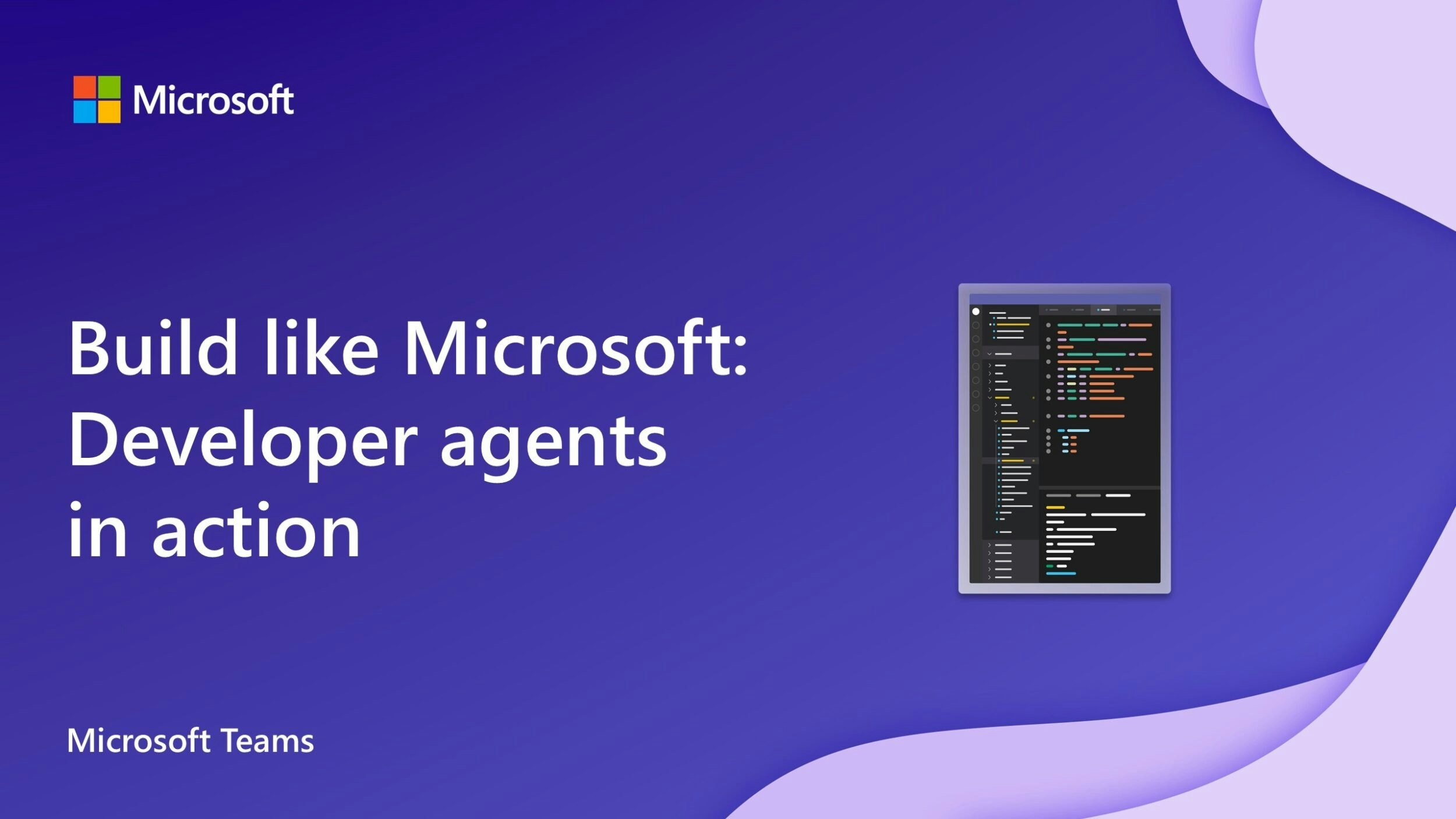
Table of Contents
Overview
Tired of juggling pull requests, tasks, and release plans across multiple platforms? While you can’t access Microsoft’s internal Athena AI-powered collaborative developer agent directly, you can now build your own version using the principles and template Microsoft has made available. Athena, which has revolutionized development workflows for over 2,000 Microsoft engineers, demonstrates how AI agents can streamline software development processes within Microsoft Teams.
Key Features
Based on Microsoft’s internal Athena implementation, a similar AI agent can provide:
- Integrated with Microsoft Teams: Seamlessly integrates into your existing Microsoft Teams workspace, providing a centralized hub for development activities.
- Pull Request Management: Simplifies the pull request process with 94% precision in reviewer recommendations, automated build re-queuing, and intelligent workflow suggestions.
- Task Coordination: Enables natural language queries and updates to Azure DevOps work items, helping teams coordinate tasks effectively.
- Release Planning: Assists with release planning through real-time visibility into shipping status and release blocker identification.
- Built with Dex Open-Source Template: While Athena itself inspired the creation of the Dex template, you can now use this open-source framework to build your own Athena-like agent with full customization capabilities.
- AI-Powered Automation: Leverages AI to automate repetitive tasks like security reviews, compliance processes, and workflow optimizations.
How It Works
Since Athena itself is not publicly available, development teams can create their own version using the Dex template. The process involves:
- Setting up the Dex agent template in your Teams environment
- Connecting with existing development tools like GitHub and Azure DevOps
- Configuring AI-powered workflows for pull requests, task management, and release tracking
- Customizing the agent to match your team’s specific development processes
The agent acts as a virtual teammate, anticipating what needs to happen next and helping teams take action without context switching.
Use Cases
Athena shines in various scenarios, making it a valuable asset for different types of development teams:
- An Athena-inspired agent built with Dex excels in scenarios such as:Software development teams using Microsoft 365: Teams already invested in the Microsoft ecosystem will find the integration particularly seamless.
- Agile teams seeking AI assistance: Teams can optimize sprints and improve collaboration through AI-powered workflow automation.
- Enterprises managing complex dev workflows: Large organizations can streamline processes and ensure consistency across multiple development teams.
Pros & Cons
Like any tool, Athena has its strengths and weaknesses. Let’s break down the advantages and disadvantages:
Advantages
- Seamless Teams integration: Provides a unified experience within Microsoft Teams
- Proven effectiveness: Based on Microsoft’s internal success with measurable productivity gains
- Open-source flexibility: The Dex template allows for extensive customization to meet specific requirements
- Boosts development productivity: Automates repetitive tasks and provides intelligent suggestions
Disadvantages
- Not a commercial product: Athena itself is not available for purchase; teams must build their own using Dex
- Requires Microsoft 365 ecosystem: Teams must be invested in the Microsoft platform stack
- Development effort required: Building and customizing the agent requires technical expertise and resources
- Limited to Microsoft’s blueprint: While flexible, the approach is tied to Microsoft’s development methodology
How Does It Compare?
When considering AI-powered development tools, it’s important to understand how Athena stacks up against the competition.
- GitHub Copilot: Excels at code completion and generation but focuses on individual coding tasks rather than team workflow orchestration.
- Linear: Provides robust project management capabilities but lacks the native Teams integration and AI-powered automation that an Athena-inspired agent offers.
- Commercial alternatives: Unlike proprietary solutions, the Dex template approach offers full customization and no vendor lock-in.
Final Thoughts
While Microsoft’s Athena itself remains an internal tool, the company has democratized its approach through the open-source Dex template. This allows development teams to create their own AI-powered collaborative agents with proven methodologies. The success Microsoft has achieved internally—with over 2,000 engineers using Athena weekly and achieving significant productivity gains—demonstrates the potential value of this approach.
For teams committed to the Microsoft ecosystem and willing to invest in customization, building an Athena-inspired agent using the Dex template represents a powerful opportunity to transform development workflows. However, organizations should be prepared for the development effort required and understand that this is a framework for building custom solutions rather than a ready-made product.

